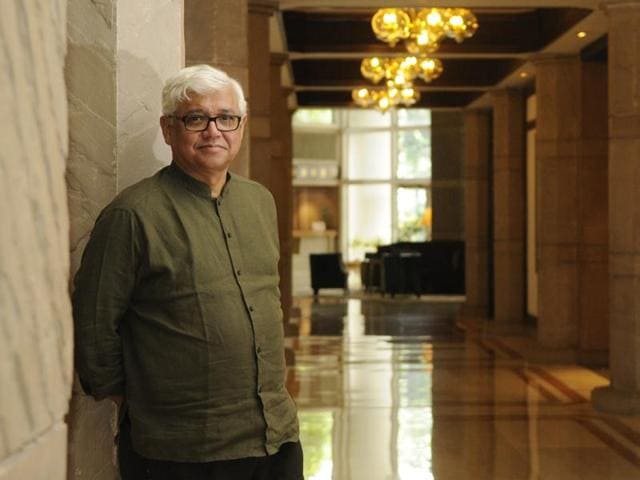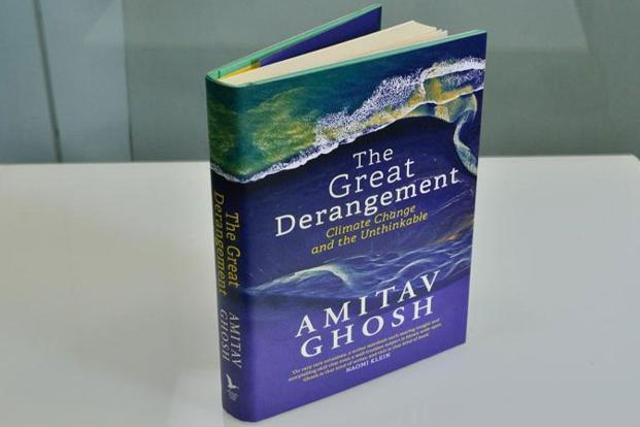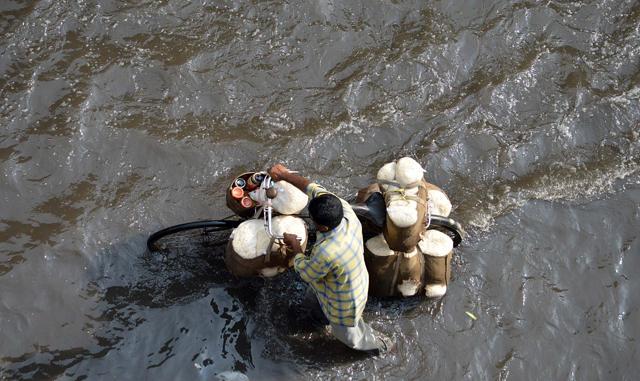Building on Kolkata wetlands should be resisted at all costs: Amitav Ghosh
The author says that way we are currently constructing in dangerous ways and it will lead to a disaster.
Climate change has never been a part of our dinner table conversations. For most of us, it’s something happening in a faraway land, like Alaska, until it hits us. It’s happening all round us and according to renowned author Amitav Ghosh, “We are looking at a disaster.”

The author —whose latest book The Great Derangement: Climate Change and the Unthinkable talks about our inability to grasp the scale and violence of the phenomena — is concerned with the unrestricted construction spree in Kolkata. “If something (a natural disaster hits the city) happens, the two things which protect Kolkata are the east Kolkata wetlands and the Sunderbans. This vast wetland around us is what makes life in the city possible. If they start constructing on those lands, what they construct is doomed. When the floods come they will destroy the places. This is a terrible idea. Building on the wetlands should be resisted at all cost,” says the author whose book The Hungry Tide was awarded the Crossword Book Prize in 2005. “We are looking at a disaster. We are constructing and building in dangerous ways. We have double disaster unfolding in front of our eyes,” he adds as an afterthought.

Read: Nobody creates a narrative around climate change: Amitav Ghosh
Also what’s happening in the food world is worrying. “Earlier, if you had gone to any bazaar in Kolkata you would have found about 30 or 40 varieties of rice. Now, we get only five or six mass-produced varieties. You no longer see the ecologically-adapted varieties; also people no longer want to eat those varieties. You only see very white rice, which is not dense in nutrition. These forms (modified crops) of cultivation will be the first to collapse under the stresses of climate change. In fact, it’s those other adapted varieties of seeds that will flourish and thrive. We are slowly losing these varieties and are also steadily losing our taste for these varieties.”
He also talks about Bengalis’ much-loved fish. From hundreds of varieties, now the middle-class Bengali only consumes a few chosen types of fish. “They sound horrified at the idea of eating a fish like ‘Pakal mach’, which is so delicious,” says Ghosh. Rather than buying from supermarkets, Ghosh advocates buying from local vegetable sellers. “We have a relationship with them and they in turn have a relationship with their land,” says The Calcutta Chromosome author.

Read: Exclusive excerpts from Amitav Ghosh’s yet-to-be released book
It was while researching The Hungry Tide that Ghosh got interested in the issue of climate change. “I have always been interested in environmental questions. It was while working on the book that I became much more involved. For one thing, you begin to see displacement and salt water intrusion. It had a big impact on me. While writing the book I became interested in the science behind storms and sea level rise. It was the writing of the Hungry Tide that opened my eyes to these issues,” says the author whose ancestors left Bangladesh in the 1850s because of a climate event; a river shifted course and their village was drowned.



